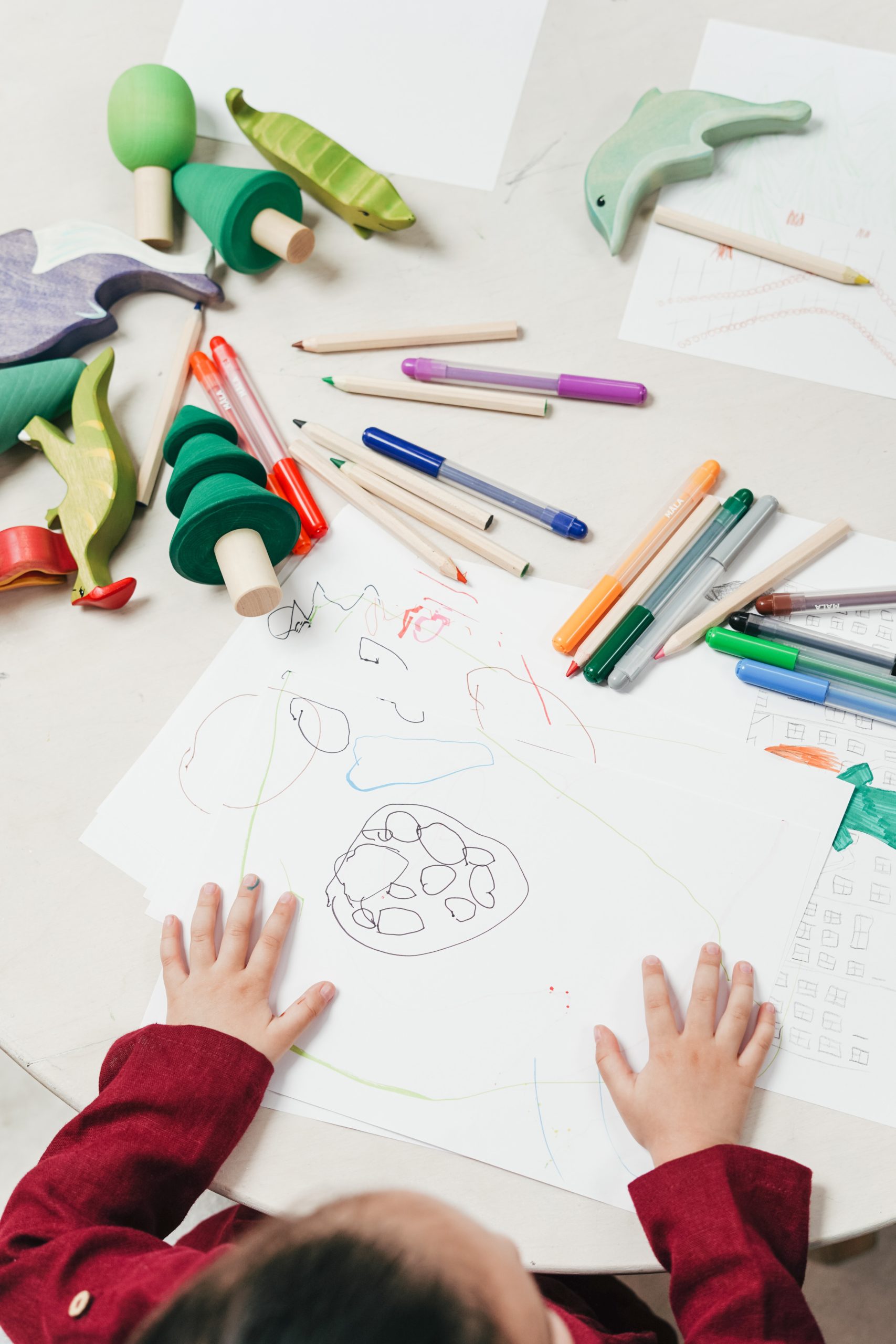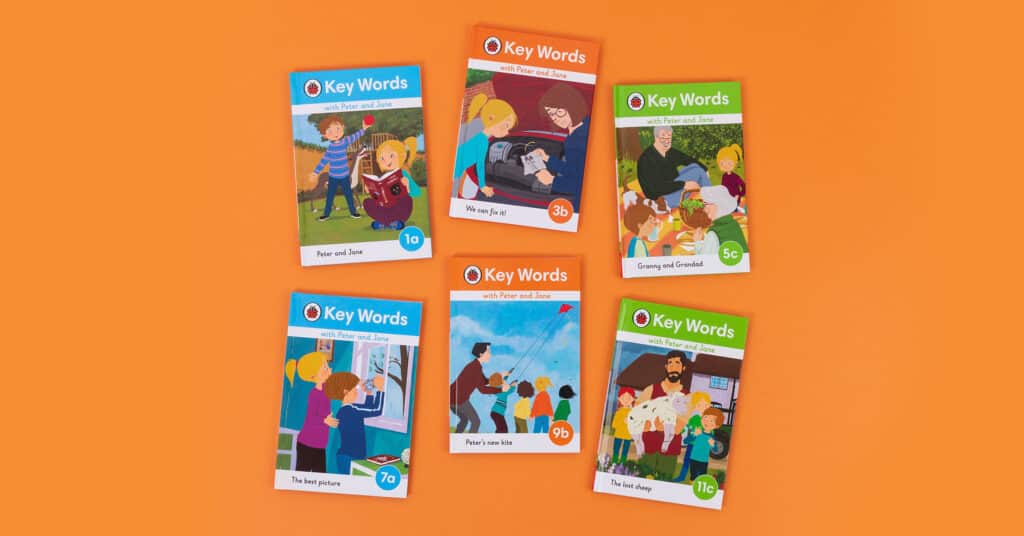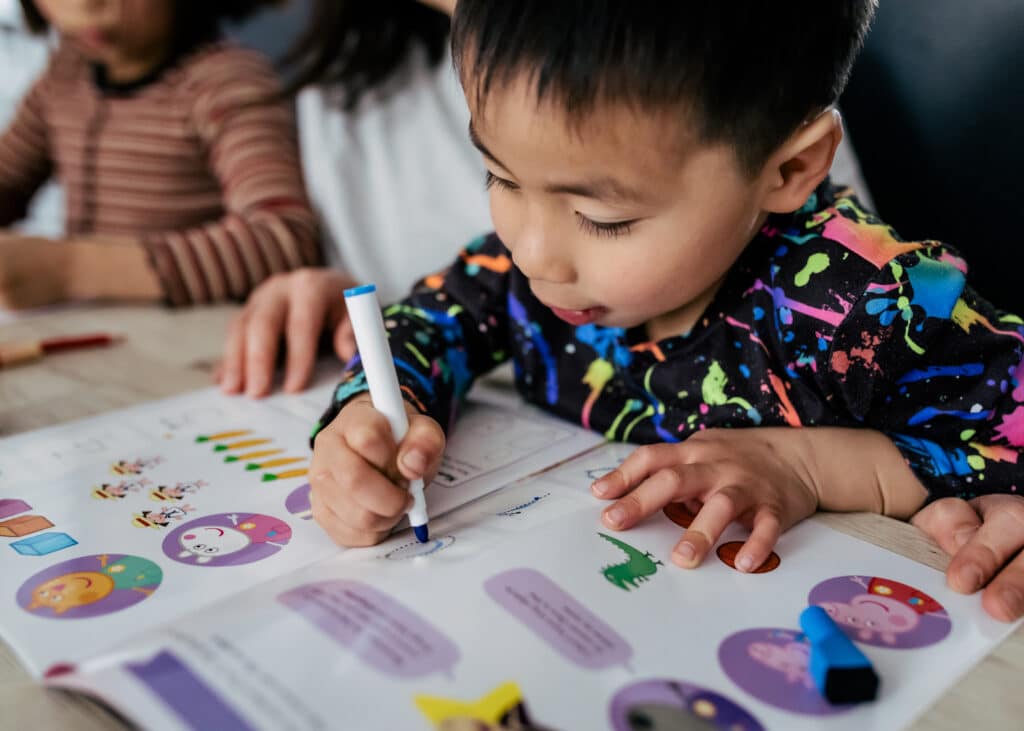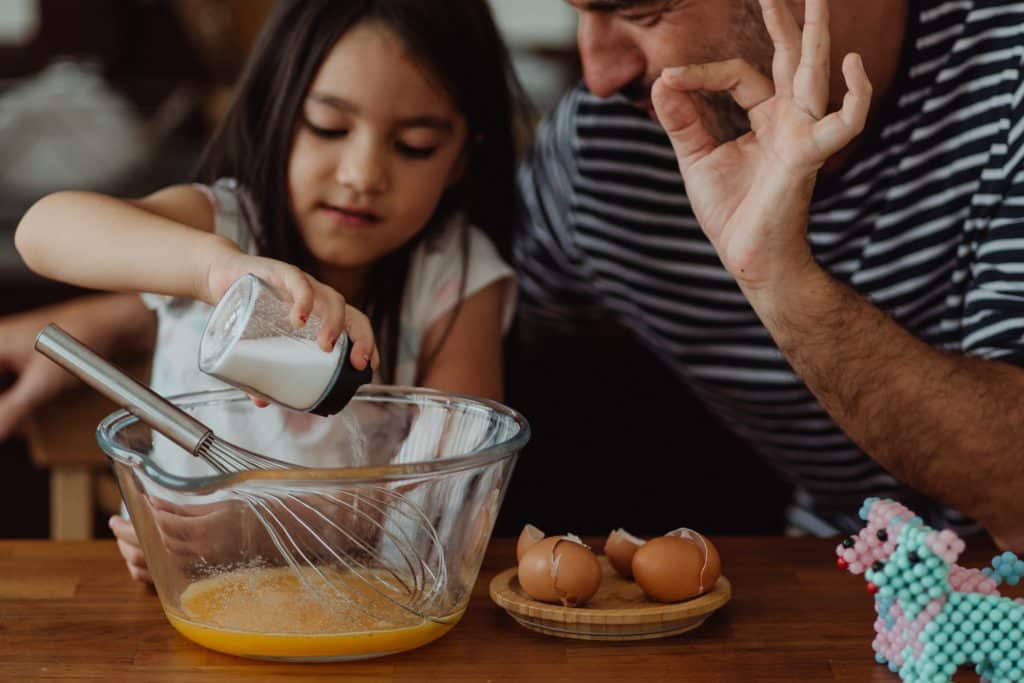Early Word Games and Activities to Try at Home
Learning to read can involve more than just books. These early-word activities can easily be implemented in the home and help you extend their reading experience.
My father taught me to read using the scrapbook method, a simple collation of some photos and scrap memorabilia set beside their correlating words. You can do this too by gathering together pictures of anything important to a young child in a homemade book, and writing clearly related words alongside each entry. I remember this vividly and have used it with my own children, among others, to teach them to read too.
These tactile activities extend the reading experience and engage the child through a multi-sensory experience. Here are a range of early word games and activities which can follow on from this experience and help your little ones begin their reading journey.
Further scrapbook activities

If your child enjoyed creating ‘My first book’ you could make similar books with the themes such as my pets, my house (with the book cut out in a house shape), my family and friends, and holidays, too. They could then make a library, and share the books with family, friends, and even their teacher, when starting school. Putting books together like this will naturally flow from the child’s own world and interests.
This is called a learner-centered approach to reading. Your child will naturally want to please you, as you will them, so it’s ideal to work on the books together. Have fun cutting and sticking and let them have independence with their book and choices. Remember, it is their book, not yours!
Word games
Word games can easily follow on from these scrapbooks. As your child grows and develops they will begin to realise that each individual written word has meaning. Using the Ladybird Key Words Flash cards, which print the 100 most used words in the English language, you can play many simple games. These include Snap, Bingo, a Treasure Hunt’, Reading Rhymes, and Fishing for words, to name but a few.
Remember that as your child grows, you can point out to them that we are surrounded by written words… from the back of a cereal packet to road signs, to the name of the street or town where you live. Following simple recipes, or being helped to read simple instructions for a game, will help the child to understand that learning to read has a sense of purpose. Learning to read the days of the week, months of the year, and numbers, are helpful too.
Obviously reading (and later writing) their name is the most important, and your child should learn it with a sense of pride.
All of the above will help to unlock the door of learning to read, for a lifetime of satisfying activity.




